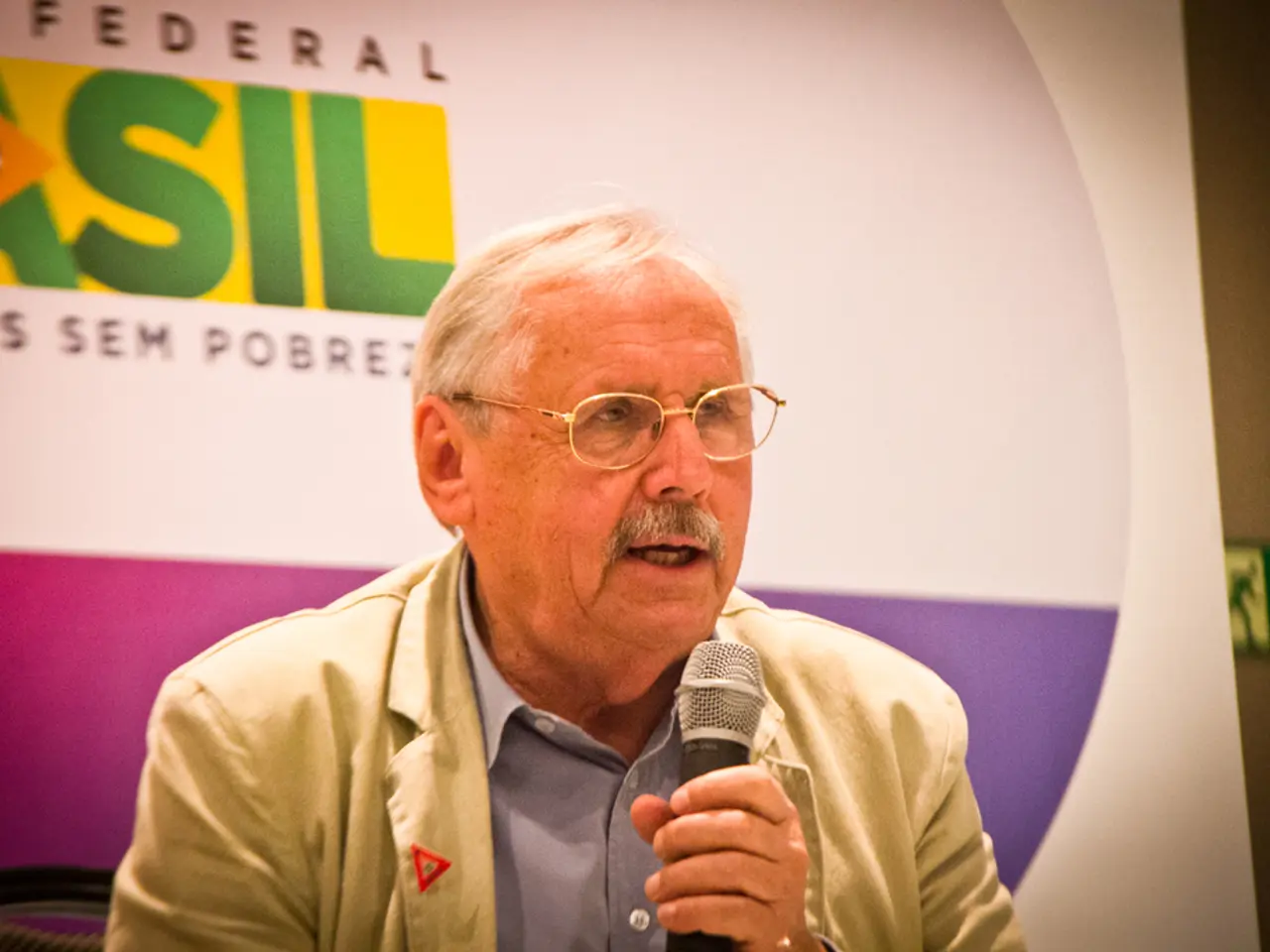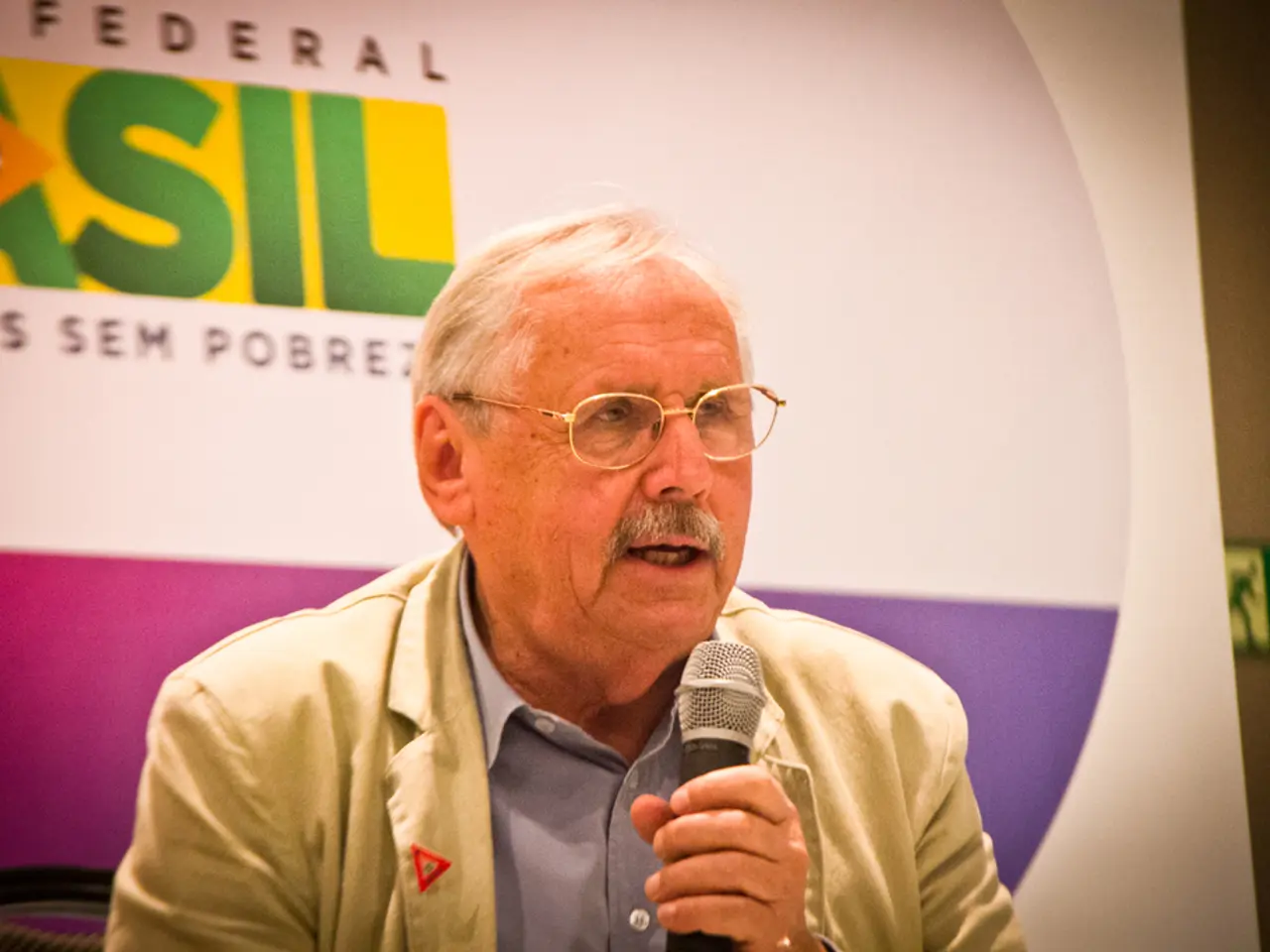German Parliament Proposes Suspending Family Reunification
Berlin - The German parliament has voted to temporarily halt family reunification for refugees with subsidiary protection status for a period of two years. This move is part of a series of planned immigration policy changes by the federal government.
The first debate in parliament on a bill to scrap the "turbo-naturalization" prompted the Left and Greens to accuse the ruling coalition of pushing away well-integrated immigrants. The coalition aims to abolish the fast-track naturalization introduced a year ago for individuals with exceptional integration achievements.
Other elements of the citizenship law reform, decided by the traffic light government, remain in place. These include the possibility of dual citizenship and a reduction in waiting time for regular naturalizations from eight to five years.
Federal Interior Minister Alexander Dobrindt (CSU) maintains that a single reform is not enough. He believes it is about taking a plethora of measures to implement the migration turnaround, stating, "It is not a change of course, it is a frontal attack on our people." Ferat Kocak (Left) has a different viewpoint, calling it "a change of course, it is a frontal attack on human rights."
The suspension mainly affects refugees from Syria. According to Bundestag Vice President Bodo Ramelow, 444 members of parliament voted in favor of the ban. 135 voted against it.
Dobrindt explains that the purpose of the suspension is to control and limit immigration into Germany fairly. "That is the task for this legislative period," he adds, facing repeated interruptions from the opposition. German parliament President Julia Klöckner admonished MP Luigi Pantisano (Left) for shouting "lie" during Dobrindt's speech.
Under the new rules, subsidiarily protected persons will only be able to bring in spouses, minor children, and in the case of unaccompanied minors, parents in difficult circumstances.
AfD Offers Tepid Support
The far-right Alternative für Deutschland (AfD) party described the coalition's legislative proposal as a "small step in the right direction," and, as such, expressed support for the amendment. However, their parliamentary business manager, Bernd Baumann, claims that Dobrindt has adopted ideas from the AfD. The Greens criticize the suspension as being "cruel," stating that refugees often lack the emotional support necessary for successful integration without their families.
SPD Struggles with the Policy
The interior spokesman of the Union faction, Alexander Throm (CDU), defends the government's policy against the criticism coming from the Greens and the Left, stating, "It’s about granting access to people who originally arrived in Germany illegally."
Germany's integration commissioner and SPD member, Natalie Pawlik, argues that it is time to move away from a negative debate about migration since it also offers opportunities for German society. The interior spokesman of the SPD faction, Sebastian Fiedler, acknowledges that the suspension of family reunification "is a topic that the SPD would not have come up with."
Legal Challenges Ahead?
The refugee rights organization "Pro Asyl" points out that some affected individuals have been waiting for years for their families to join them. The organization plans to examine legal steps "and offer support to those affected in pursuing legal challenges should the need arise." Pro Asyl argues that the suspension of family reunification may violate human rights protections and international law.
The government's stance has also faced criticism over the rejection of asylum seekers at German borders. Last month, an urgent decision by the Berlin Administrative Court ruled that the rejection of three Somalis turning back at the border town of Frankfurt (Oder) was illegal. Interior Ministry spokesperson Irene Mihalic had asked whether the justification for turning back asylum seekers had changed following this decision, to which the Ministry responded that "no justification for turning back asylum seekers has been altered or sent to the Federal Police." Critics of the interior minister, Alexander Dobrindt, call the minister's responses demonstrative of a lack of responsibility and basic legal knowledge.
Border rejections have existed for some time, with stationary border controls put in place since 2015. As of Dobrindt's order on May 7, approximately 5,000 individuals have been turned back at the borders, including 264 asylum seekers. Critics argue that the low percentage could be in part due to the increased awareness that seeking asylum no longer automatically guarantees entry.
[1] Stompe, B. (2021, June 14). New immigration law could leave Syrians without loved ones for years. Deutsche Welle. https://www.dw.com/en/new-immigration-law-could-leave-syrians-without-loved-ones-for-years/a-58066261
[3] Ng, Y. S. (2021, June 16). Germany Moves to Limit Family Reunification for Refugees. The New York Times. https://www.nytimes.com/2021/06/16/world/europe/germany-family-reunification-refugees.html
[4] Zühlke, J. (2021, June 15). Family reunification dropped in Germany: Not legal according to court decision, but a de facto ban, according to Pro Asyl. FOCUS ONLINE. https://www.focus.de/politik/deutschland/family-reunification-in-deutschland-fuehrengruppe-pro-asyl-droht-mit-klagefaellen_id_125558708.html
"The suspension of family reunification for refugees, as dictated by the German parliament's recent policy-and-legislation, is a contentious issue in the realm of politics and general-news, sparking debates about human rights and immigration policy changes."
"The far-right Alternative für Deutschland party, while offering tepid support for the amendment, has accused Federal Interior Minister Alexander Dobrindt of adopting ideas from the party, creating further tension in the ongoing political discourse."







